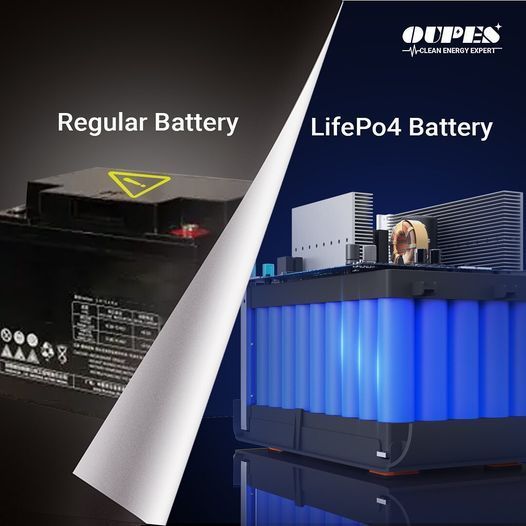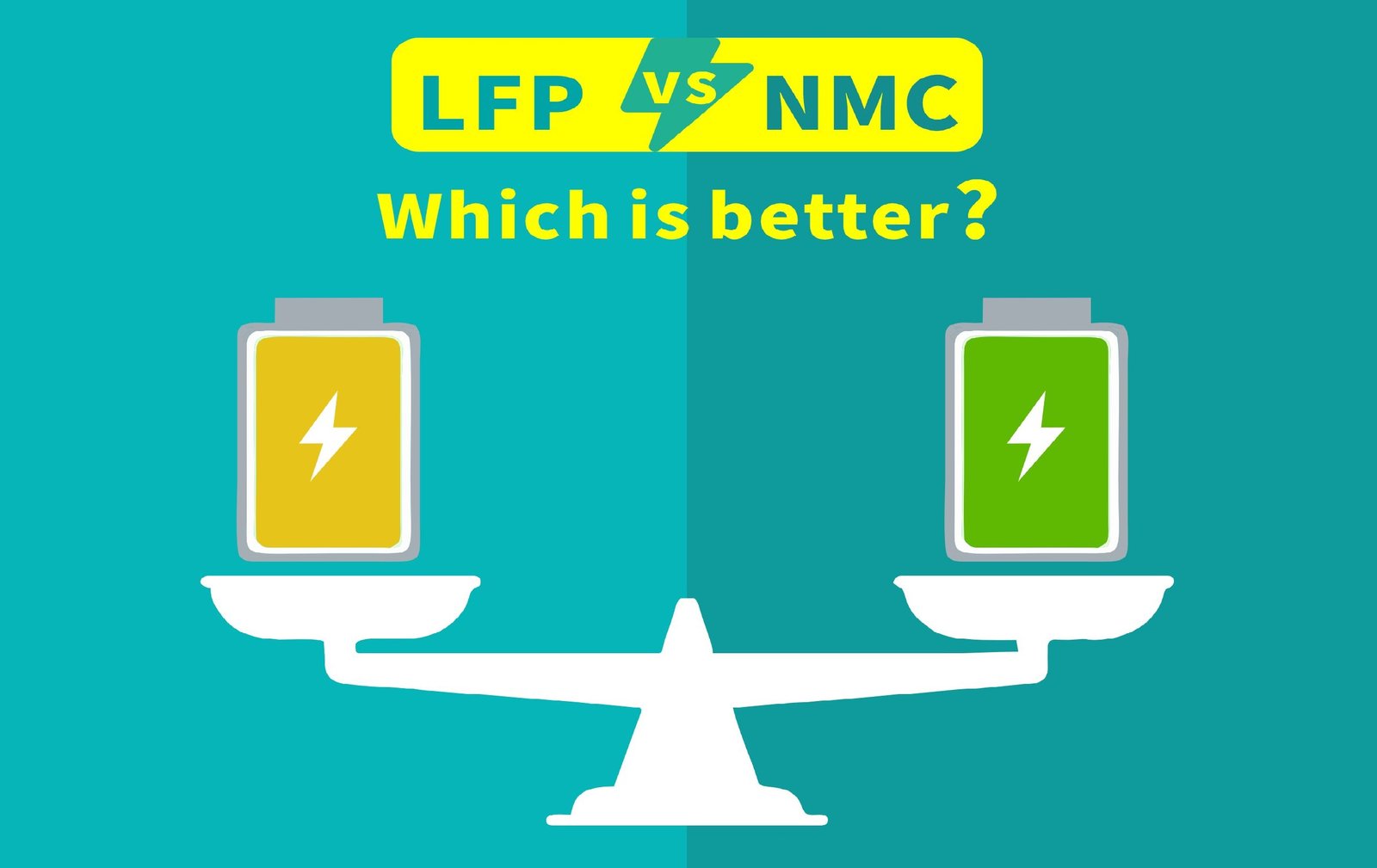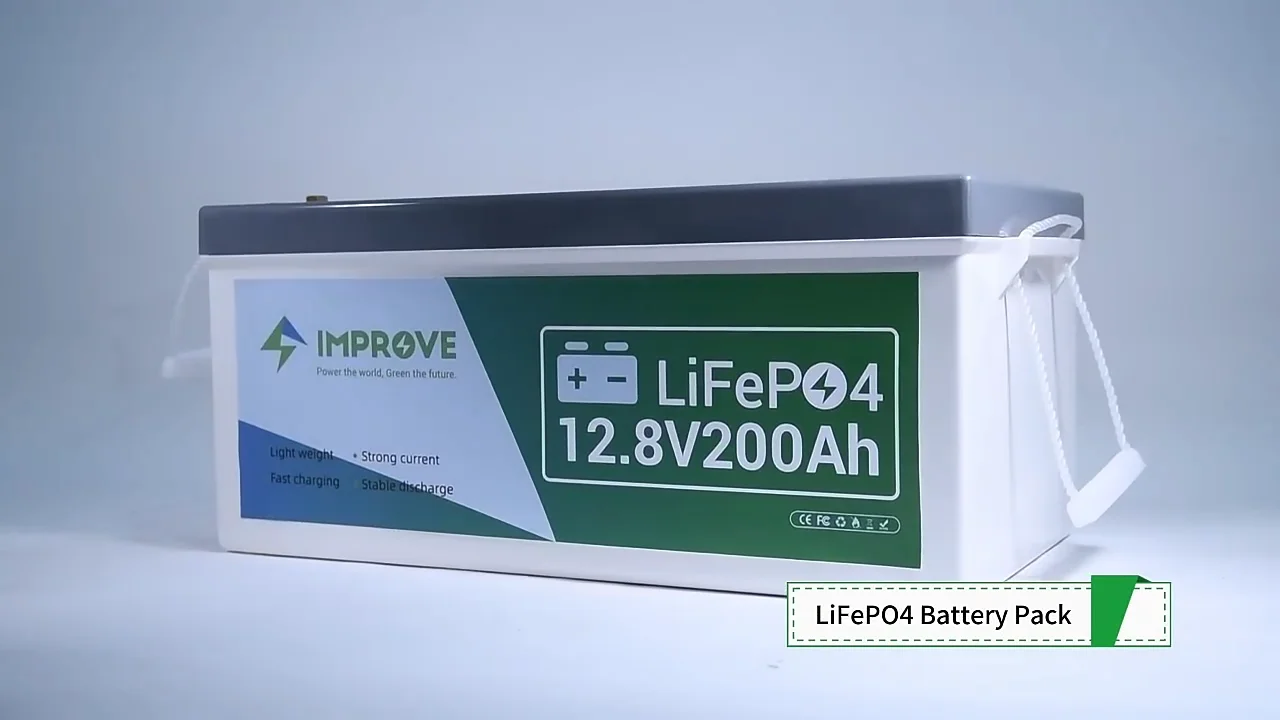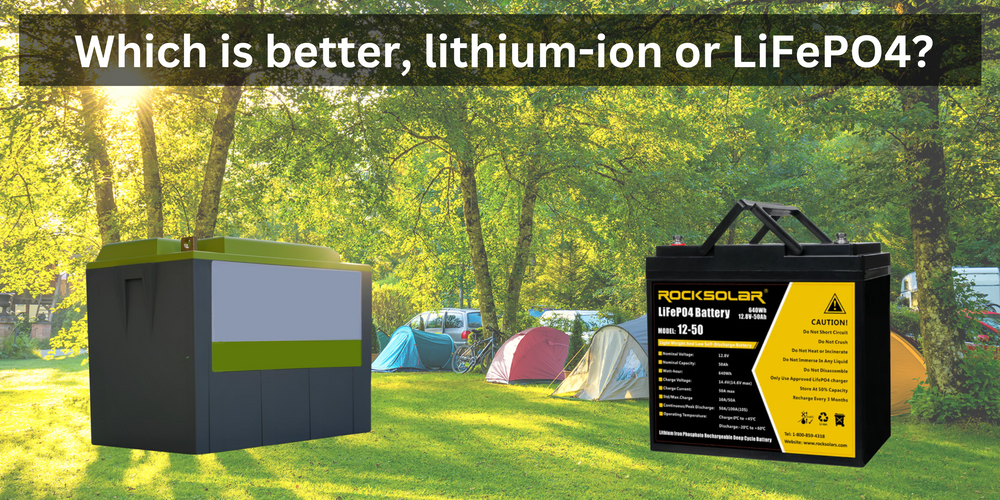Glory Info About Which Is Better, Lithium-ion Or LiFePO4

Lithium-Ion vs. LiFePO4
1. What's the Deal with These Batteries Anyway?
So, you're looking at batteries, eh? Maybe for a solar setup, an electric vehicle, or powering your off-grid cabin? And you've stumbled upon the age-old question: Lithium-ion or LiFePO4? (That's Lithium Iron Phosphate, for those not up on their chemistry acronyms). Don't worry, you're not alone! Choosing the right battery can feel like navigating a maze filled with technical jargon. I'm here to help you sort it out without getting too lost in the weeds.
Think of lithium-ion as the versatile all-rounder, kind of like that friend who's good at everything. It's been around for a while, powering our smartphones, laptops, and even some electric cars. LiFePO4, on the other hand, is the newer kid on the block, known for its impressive safety and longevity. It's like the super-responsible friend who always plans ahead and never spills their drink.
The heart of the matter is this: both are lithium batteries, but they use different chemical compounds for their cathode (the positive side of the battery). This difference dictates their performance characteristics, including safety, lifespan, energy density, and cost. Deciding "which is better" depends entirely on your specific needs and priorities.
We're going to dive deeper into these differences. Imagine this: You are planning a cross-country road trip in an electric vehicle. One battery promises more range, while the other offers a safer journey. Which one would you pick? It's not always a simple choice, but let's equip you with the knowledge to make the right one.

Safety First! (Or Should It Be?)
2. The Fiery Side of Batteries
Okay, let's address the elephant in the room: safety. We've all heard stories (or seen the videos) of lithium-ion batteries catching fire or exploding. While these incidents are relatively rare, they highlight a real concern. Lithium-ion batteries are more prone to thermal runaway, a chain reaction where the battery overheats and can potentially burst into flames. This is due to the materials used in their construction.
LiFePO4 batteries, however, are significantly safer. They are much more stable and less likely to overheat, even under extreme conditions. This is because the iron phosphate chemistry is inherently more stable than other lithium-ion chemistries. They can withstand higher temperatures without decomposing, making them a much safer option, especially in demanding applications or environments.
Think of it this way: Lithium-ion batteries are like that adventurous chef who experiments with new and exotic ingredients, sometimes with explosive results. LiFePO4 batteries are like the seasoned home cook who sticks to reliable recipes and consistently delivers safe and delicious meals.
So, if safety is your top priority — perhaps because you have kids or are planning to install batteries in a remote location where help might be slow to arrive — LiFePO4 is the clear winner. They offer peace of mind that you simply can't get with standard lithium-ion.

Lifespan
3. The Marathon Runners of the Battery World
Another critical factor to consider is the lifespan of the battery. How many charge and discharge cycles can you expect before the battery starts to degrade significantly? This is where LiFePO4 batteries truly shine. They boast an incredibly long lifespan, often exceeding 2000 to 5000 cycles or even more, depending on the depth of discharge (DoD) and operating conditions. Some manufacturers even claim lifespans exceeding 10 years.
Lithium-ion batteries, on the other hand, typically have a lifespan of 300 to 500 cycles. While this is still respectable, it's significantly less than LiFePO4. After this number of cycles, the battery capacity will start to diminish noticeably. It's like a phone battery that used to last all day but now needs a recharge by lunchtime.
Imagine you're investing in a solar power system for your home. You want batteries that will last for years, minimizing the need for replacements. In this scenario, LiFePO4 batteries would be the more cost-effective option in the long run, despite their higher upfront cost. They are the marathon runners of the battery world, built for endurance.
The extended lifespan of LiFePO4 batteries also makes them a more environmentally friendly choice. By reducing the frequency of replacements, you're minimizing waste and contributing to a more sustainable future. It's a win-win situation!

Improve Lithium Iron Phosphate Battery Lifepo4 Ion Batteries
Energy Density
4. The Packing Power of Batteries
Energy density refers to the amount of energy a battery can store for its size and weight. This is where lithium-ion batteries have a clear advantage. They typically have a higher energy density than LiFePO4 batteries, meaning they can store more energy in a smaller and lighter package.
This makes lithium-ion batteries ideal for applications where space and weight are critical, such as smartphones, laptops, and electric vehicles. A lighter battery allows for better fuel efficiency and performance in a car, and a smaller battery allows for a slimmer and more portable device.
Think of it like this: you are backpacking through Europe and need to take as much equipment as possible while still moving comfortably. Lithium-ion is like the energy bar; it packs a lot of calories (energy) into a small, light package. LiFePO4 is like a hearty, but heavier, homemade meal that will sustain you longer.
However, the difference in energy density is becoming less significant as LiFePO4 technology continues to improve. Newer LiFePO4 batteries are closing the gap with lithium-ion in terms of energy density, making them a more viable option for a wider range of applications. So, while lithium-ion still holds the edge in this category, the future may hold some surprises.

Which Is Better, Lithiumion Or LiFePO4? ROCKSOLAR
Cost Considerations
5. The Price Tag of Power
Let's talk about money. In general, LiFePO4 batteries are more expensive than lithium-ion batteries. This is due to the higher cost of the materials used in their construction and the more complex manufacturing processes involved. You'll notice the difference when comparing prices of similar capacity batteries.
However, it's important to consider the total cost of ownership. While LiFePO4 batteries have a higher upfront cost, their longer lifespan means you'll need to replace them less often. This can actually make them more cost-effective in the long run, especially for applications that require frequent cycling or a long service life.
Imagine you're buying a car. A cheaper car might seem appealing at first, but if it requires frequent repairs and has a short lifespan, you'll end up spending more money in the long run. A more expensive car that is reliable and long-lasting could prove to be the better investment.
Furthermore, the price of LiFePO4 batteries has been steadily decreasing in recent years as production scales up and technology improves. This trend is expected to continue, making them an increasingly attractive option for budget-conscious consumers. Don't let the initial price tag scare you off — consider the long-term savings.

Putting It All Together
6. Making the Right Choice for You
So, after all that, which battery is "better"? As you've probably guessed, there's no one-size-fits-all answer. It depends entirely on your specific needs and priorities. Do you need the highest possible energy density for a portable device? Lithium-ion might be the better choice. Are you looking for maximum safety and longevity for a solar power system? LiFePO4 is likely the way to go.
Think about what is most important to you: Safety, lifespan, cost, or energy density. Weigh these factors against your application, and the answer should become clear. A well-informed decision is better than guessing.
Really consider your options. Remember the friend who's good at everything? They're not always the best at everything. Sometimes it pays to pick the specialist. LiFePO4 is like the specialist that's good at one thing, and excels.
Ultimately, understanding the strengths and weaknesses of each battery technology is the key to making the right choice. Armed with this knowledge, you can confidently select the battery that best meets your needs and powers your world.